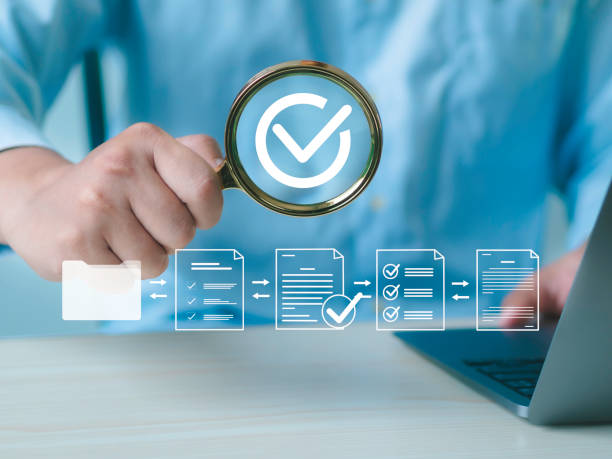Begin by checking the platform’s registration with the Australian Securities and Investments Commission (ASIC). A registered business will have a valid Australian Business Number (ABN), which you can verify through the ABN Lookup tool. This ensures the platform is officially recognized and accountable under Australian law.
Next, assess the platform’s security measures, crucial for protecting personal and financial information. Look for SSL certificates, indicated by a padlock symbol in the browser’s address bar, and read their privacy policy to understand how your data is being used and protected.
Evaluate user reviews and ratings on third-party websites such as Trustpilot or ProductReview. Genuine feedback from other users provides insights into their experiences with the platform, highlighting any consistent issues or exemplary features.
Investigate the platform’s customer service responsiveness. Send a query or concern through their provided contact details and gauge the efficiency and friendliness of their response. Adequate customer support is indicative of a reputable service.
Finally, check for industry accreditations and memberships. Being affiliated with recognized industry bodies or awards signals credibility and adherence to industry standards—if you need reassurance that you’re choosing from only legit online casinos, this is a great place to start.
Understanding Regulatory Frameworks for Online Casinos in Australia

Verify the license of any online casino by checking its registration with the Australian Transaction Reports and Analysis Centre (AUSTRAC). AUSTRAC is responsible for ensuring compliance with anti-money laundering and counter-terrorism financing legislation. Confirm the casino holds a valid license from your jurisdiction, as each state has its licensing body, like the Northern Territory Racing Commission or Queensland’s Office of Liquor and Gaming Regulation. Licensed operators must adhere to strict guidelines, ensuring fair play and secure transactions.
Examine the platform’s collaboration with independent testing agencies such as eCOGRA or iTech Labs. These organizations audit games for fairness and randomness, providing certificates that confirm their findings. Genuine online casinos prominently display these certificates on their websites, giving players confidence in the platform’s integrity.
Review the casino’s responsible gambling policies. Reliable platforms implement measures to protect players, including self-exclusion options, deposit limits, and resources for gambling addiction support. Reputable sites often partner with organizations like Gambling Help Online to assist players in managing their gaming habits responsibly.
- Check for robust encryption protocols like SSL to ensure your data remains private and secure during transactions.
- Customer support availability is a sign of a legitimate platform. Access to responsive live chats, emails, or phone support indicates a commitment to user satisfaction.
- Analyzing player reviews on trusted forums can provide insight into user experiences, offering a real-world perspective on trustworthiness and service quality.
Engage in thorough research on an online casino’s regulatory compliance to safeguard your experience and enhance trust in the platform’s operations. Stay informed and choose your gaming avenues wisely to enjoy a secure online playing environment in Australia.
Identifying Key Licensing Authorities
Begin with a search on the Australian Financial Services Register, maintained by the Australian Securities and Investments Commission (ASIC). This resource confirms if the platform holds a valid Australian Financial Services (AFS) license, vital for offering financial products or advice.
For gaming or betting platforms, consult the respective state or territory’s gambling regulatory body. For instance, the Victorian Commission for Gambling and Liquor Regulation (VCGLR) oversees licenses in Victoria, while the New South Wales (NSW) Independent Liquor & Gaming Authority manages them in NSW.
Educational platforms providing formal qualifications should be checked through the Tertiary Education Quality and Standards Agency (TEQSA) or the Australian Skills Quality Authority (ASQA). These agencies ensure compliance with educational standards across Australia.
For those offering healthcare services, verify registration with the Australian Health Practitioner Regulation Agency (AHPRA). This guarantees the platform meets national standards for health service providers.
Retail platforms must comply with the Australian Consumer Law, overseen by the Australian Competition and Consumer Commission (ACCC). While the ACCC doesn’t issue licenses, it enforces consumer protection, ensuring platforms operate fairly and transparently.
Finally, if the platform is a charity or not-for-profit, confirm its status with the Australian Charities and Not-for-profits Commission (ACNC). This not only verifies legitimacy but also ensures compliance with national charity standards.
Reviewing Legislative Requirements
Identify the governing body relevant to the platform’s industry. This could be ASIC, ACCC, or the OAIC. Visit their official websites for a comprehensive list of regulations and requirements applicable to online services.
- Check if the platform is registered with the Australian Business Register (ABN Lookup). Matching ABN details with company information validates its legal standing.
- Review if the platform adheres to the Australian Consumer Law, which safeguards against unfair treatment and misleading conduct. Familiarize yourself with the specific rights and obligations this law enforces.
- For financial services, verify that the entity holds an Australian Financial Services (AFS) license via ASIC’s register. This affirms adherence to set financial conduct standards.
- If personal data is involved, ensure compliance with the Privacy Act 1988, requiring platforms to manage customer data responsibly. Confidentiality statements should be publicly accessible and comprehensive.
- For health-related platforms, check compatibility with guidelines set by the Therapeutic Goods Administration (TGA), ensuring products meet safety standards.
Understanding these requirements empowers you to make informed decisions and protects against potential legal pitfalls.
Importance of Compliance with Local Laws
Ensure your online platform adheres to Australian regulations by familiarizing yourself with relevant legal requirements. Delve into the guidelines of the Australian Competition and Consumer Commission (ACCC) to understand consumer protection laws. Adherence demonstrates transparency and builds trust with potential customers. Confirm compliance with the Privacy Act 1988 to protect customer data and comply with the Notifiable Data Breaches scheme.
Verify if your platform needs an Australian Business Number (ABN) or Goods and Services Tax (GST) registration. This establishes financial accountability and illustrates respect for Australian financial systems. Access local legal consultations or use online resources for updated information on digital compliance standards. Addressing these factors not only reduces legal risks but also enhances your platform’s reputation in the Australian market.
Here is a checklist of critical compliance areas:
| Compliance Area | Description |
|---|---|
| ACCC Guidelines | Understand consumer rights, fair trading, and competition principles. |
| Privacy Act 1988 | Implement data protection measures and adhere to data breach notifications. |
| ABN and GST Registration | Register for ABN and GST if applicable to your business operations. |
| Online Legal Resources | Utilize resources for continuous updates on legal obligations and requirements. |
Proactive compliance highlights commitment to ethical business practices, essential for fostering strong customer relationships in Australia. Prioritize staying informed on legislative changes to keep your platform in good standing.
Spotting Signs of a License Violation
Always verify the platform’s license number by visiting the official Australian government website related to licensing. Genuine platforms openly display their license numbers and the corresponding licensing authority.
Examine the credibility of reviews on third-party websites. While many platforms have testimonials on their own sites, cross-referencing with independent review platforms can reveal discrepancies suggesting license issues.
Check the contact information. Legitimate online platforms provide clear and detailed contact options, including an Australian address and phone number. A lack of transparency could be a sign of license violation.
Observe the platform’s security certificates. A valid SSL certificate, displayed as HTTPS in a web browser’s address bar, signifies that the platform assures secure transactions. A missing or invalid SSL certificate casts doubt on compliance with licensing requirements.
Pay attention to public records and news updates about the platform. Platforms involved in legal disputes or regulatory fines might indicate regulatory noncompliance.
| Action | Indicator |
|---|---|
| Check License Number | Missing or unverifiable license details |
| Review External Feedback | Negative or inconsistent reviews |
| Verify Contact Information | Lack of genuine contact details |
| Inspect Security Credentials | Invalid or missing SSL certificate |
| Monitor Public Records | Unfavorable legal or regulatory history |
Identifying these warning signs early can help pinpoint platforms that may infringe upon licensing standards, ensuring safer choices when engaging with online services.
Practical Steps to Ensure Casino Legitimacy

Check for a valid license issued by reputable authorities like the Australian Communications and Media Authority (ACMA) or other known international regulators. This confirms adherence to legal and ethical standards.
Investigate the casino’s reputation through independent review platforms and user forums, where real players share their experiences. Look for patterns of complaints or consistent praise, which can indicate reliability.
Verify security measures by checking for SSL encryption on the website. A secure connection protects your personal and financial information from being compromised.
Ensure transparent financial transactions by reviewing the available payment options. Reputable casinos often offer well-known methods like credit cards, bank transfers, and popular e-wallets.
Assess the quality of customer service by contacting support with inquiries. Responsive and helpful service can be a strong indicator of a trustworthy platform.
Test the fairness of games by looking for audits from independent testing agencies such as eCOGRA. This assures that the outcomes are genuinely random and fair.
Read the terms and conditions thoroughly, focusing on the withdrawal policies and any wagering requirements. Clear and fair terms are a hallmark of reputable casinos.
Checking for Secure Payment Methods
Verify that the platform employs reputable payment processing services, such as PayPal, Stripe, or Square. These processors are renowned for their robust security features. Look for encryption seals, which indicate the data transmission is encrypted and secure. Ensure the website uses HTTPS in the URL, which provides an extra layer of security during transactions.
Examine for alternative payment options like bank transfers or digital wallets. Trusted platforms typically offer a variety of secure payment methods to accommodate diverse customer preferences. Avoid sites that require direct credit card information without offering a third-party payment gateway.
Additionally, review the platform’s privacy policy to understand how they handle your sensitive financial data. Legitimate sites will provide clear information about their data protection practices and how they safeguard your payment details.
If available, use a virtual credit card or prepaid debit card as an extra precaution. This limits exposure to your primary accounts. Thoroughly checking these aspects establishes confidence in the platform’s security structure and reduces the risk of financial fraud.
Verifying Reputation through User Reviews
Check multiple review platforms to gain a balanced perspective on user experiences with a particular online platform. Prioritize websites like Trustpilot, ProductReview.com.au, and Google Reviews, where you can find diverse opinions from actual users.
Analyze patterns rather than focusing on single reviews. Look for recurring themes, such as consistent praise for customer service or frequent complaints about delivery times, which can indicate systemic issues or strengths.
Identify recent reviews to ensure you’re getting the platform’s current state of operations, especially if changes or updates have been mentioned in the company’s history. Older reviews may not accurately reflect recent improvements or deteriorations in service quality.
Cross-reference user reviews with other resources. Check forums, social media, and news articles for additional insights or red flags. This wider scope can provide a more thorough understanding of the platform’s reputation.
Understand the influence of extreme reviews. While glowing or highly negative reviews can be helpful, be wary of outliers that may result from rare incidents or biased opinions. Average or moderate reviews often provide a more realistic depiction of user experiences.
Consider context when evaluating reviews, paying attention to how the platform has engaged with users’ feedback. Responsive and constructive interactions in comment sections often indicate a company that values customer satisfaction and is committed to improvement.
Assessing Customer Support Options
Begin by testing the availability and responsiveness of the customer support service. Look for platforms with multiple contact options, such as live chat, email, and phone support. Try using each method to gauge the response time and the quality of assistance. Swift and knowledgeable responses indicate a reliable platform.
Check the support hours to ensure they align with your needs. Some platforms offer 24/7 assistance, which is ideal for urgent issues. Additionally, explore the website for an FAQ section or community forum. These resources can provide immediate answers and are a sign of strong customer care commitment.
Read online reviews focusing on users’ experiences with the support team. Look for patterns in feedback, particularly regarding the resolution of issues and how well agents communicate. Positive reviews in this area reflect well on the platform’s dedication to user satisfaction.
If possible, speak to someone who has interacted with the platform’s support services. Firsthand experiences can provide insight beyond what is visible publicly. Always ensure the platform offers a clear escalation process for unresolved matters, indicating effective internal operations.
Confirming Third-Party Audits and Certifications
Begin by checking if the online platform displays any third-party audit or certification logos on their website. Ensure these are officially sanctioned by reputable organizations. Scrutinize details by following these steps:
- Identify Certification Labels: Look for marks like ISO, PCI DSS, or any industry-specific standards relevant to the platform’s services.
- Verify Authenticity: Visit the official website of the certifying organization. Cross-reference their directory or database to ensure the platform’s certification is authentic.
- Check the Validity Period: Certifications often have expiration dates. Ensure that they are current and have not lapsed.
- Search for Public Reports: Some certifications require regular compliance reports. These may be publicly accessible on the certifier’s site. Confirm they match the platform’s claims.
- Consult Accreditation Bodies: In Australia, organizations like JAS-ANZ verify the competency of certifying bodies. Confirm that the entity providing the certification is accredited by such regulatory bodies.
- Look for Independent Reviews: Analysts or industry experts may discuss the credibility of certifications in forums or publications. These reviews can provide additional perspective on legitimacy.
Following these steps reinforces your understanding of the platform’s reliability and helps you make informed decisions. For further assurance, direct inquiries to the certifying organization if any doubts persist.
Q&A:

How can I check if an online platform is legitimate in Australia?
To verify the legitimacy of an online platform in Australia, begin by checking for an Australian Business Number (ABN). This number indicates that the business is registered in Australia. You can search for the ABN on the Australian Business Register website. Additionally, read online reviews from multiple sources, look for a physical address and contact details on their website, and check for any affiliations with reputable organizations.
What are the signs of a suspicious online platform?
Signs of a suspicious online platform may include the lack of a secure connection (look for “https” in the URL), poorly designed websites, absence of contact information, unprofessional email communication, too-good-to-be-true deals, and negative reviews online. It’s advisable to exercise caution and conduct thorough research if you encounter any of these indicators.
Is there a government agency in Australia that helps verify online businesses?
Yes, in Australia, the Australian Competition and Consumer Commission (ACCC) helps protect consumers and offers guidance on identifying scams and illegitimate businesses. The ACCC website provides valuable resources and information on how to recognize fraudulent activities and report scams.
Are there any online tools that can help verify if a website is safe?
Several online tools can help determine the safety of a website. For instance, Web of Trust (WOT) and Norton Safe Web provide insights based on user reviews and safety ratings. Additionally, using Google’s Safe Browsing tool can alert you to any known security issues associated with the site.
What should I do if I suspect an online platform is fraudulent after I’ve shared my information with them?
If you suspect an online platform is fraudulent after sharing your information, immediately contact your bank or credit card company to secure your accounts and monitor for any unauthorized transactions. Report the platform to the ACCC and consider changing your passwords on all accounts. It’s also wise to regularly check your financial statements for any suspicious activity.
What are some key indicators that an online platform in Australia might be legitimate?
To ensure an online platform’s legitimacy in Australia, start by checking for secure connections. Look for “HTTPS” in the web address, indicating a secure connection. Verify that the platform provides clear contact information, such as an address and phone number. Additionally, research customer reviews on independent websites to gather user experiences and satisfaction levels. The presence of clear terms and conditions or a privacy policy can also indicate transparency, suggesting that the platform operates within legal frameworks. Finally, for transactional platforms, verify if the website supports reputable payment methods, which can offer some insight into its trustworthiness.




